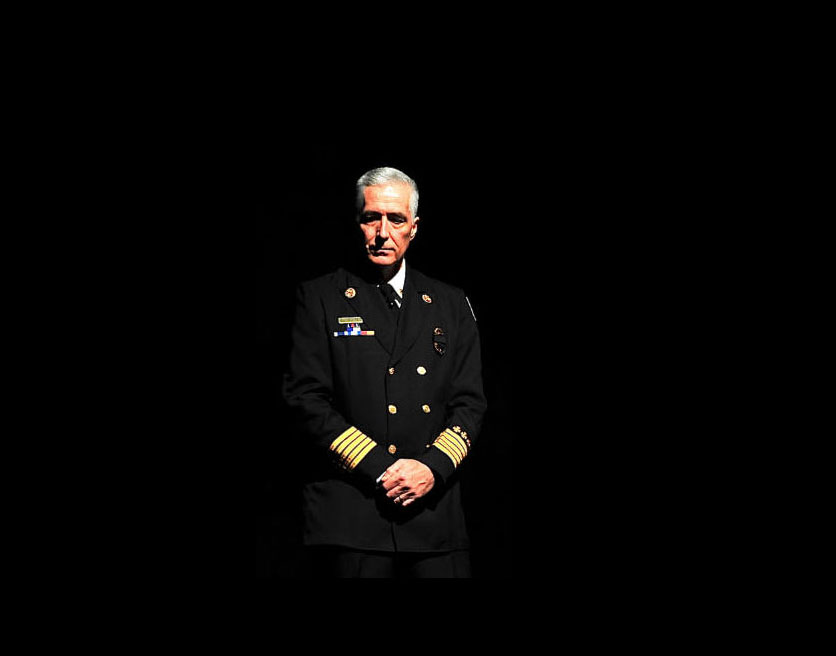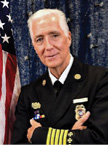
Editor’s Opinion ❘ By BOBBY HALTON
The fire service is an amazing collection of tradespersons from across the spectrum of trades. Our own specific skills, knowledge, and abilities in firefighting are augmented and boosted by our varied individual understanding of and interest in other trades such as auto mechanics, construction, computer skills, animal care, culinary, outdoor and urban survival skills, and anything else you can imagine. It is always interesting and confusing to us when we are told we “resist change” or are bound by old ways of doing our work. We don’t feel that way at all; in fact, most of us troops feel quite the opposite. Generally, the folks who hold and espouse these opinions never rode backward or had much dirt under their fingernails.
It was 1905, and a rich and powerful President Teddy Roosevelt was in the White House. Teddy was an interesting guy—elite, smart, rich, very educated, vigorous, and very self-assured. Teddy had a love of hunting; we got the term “teddy bear” from a story where he refused to shoot a stranded bear cub. He was very into the outdoors, was very into progressivism, and loved big government. All his interests would come together as he, along with his acolyte and fellow Yale man Gifford Pinchot, moved quickly after his election, albeit with the best of intentions, to acquire as much land as they could to be designated National Forest lands. Their intention was to preserve these lands for the ages.
To manage and protect these lands, the Yale-educated forester Pinchot designed the U.S. Forest Service, and he would be its very first head. Pinchot would recruit and select from the finest schools (Yale, in particular) the little GPs, as they were called, the Rangers who would be sent out to manage the lands he and Roosevelt had secured for the “everyman” and who would determine how the lands could be used by the everyman. This was to ensure that the uneducated and regular folks would not use up all the resources or allow big interests such as corporate logging or mining to destroy the natural beauty of the lands.
This was all done with the best of heart, intentions, and purpose. One can argue the legality of it, and many did. John Muir, a friend of both Pinchot and Roosevelt, likewise felt only the federal government, not state and local governments, could be trusted to ensure these amazing lands would not be misused or destroyed by greed or fire.
The scrutiny of the legality of their actions forced Teddy and Gifford to accelerate their efforts before the Congress could shut them down. To be sure, there were some politicians and businesspeople who, if left unchecked, would have caused irreputable damage to some of these lands. However, to this day, some folks feel Teddy may have overstepped his authority. Ultimately, Congress felt that way and, in 1907, passed laws requiring congressional approval for the federal government to seize state lands.
The Forest Service was founded to ensure the conservation and protection of these lands that included firefighting. Americans rightfully feared the power and destructive force of wildfire. Pinchot proclaimed “with the creation of the Forest Service that America would never see another wildfire.” Unfortunately, Mother Nature didn’t get the memo.
As the saying goes, Mother Nature will pick her time, pick her place, and kick your butt. It was 1910. Gifford was running the Forest Service, and his little GPs were out enforcing the new rules and doing everything they could to stop fires as quickly as they spotted them. Teddy was hunting in Africa and his former vice president, Taft, was now the president. Things were difficult for the new forest rangers; folks didn’t care much for being told how to use the land they had been using for years, but laws are laws, and they were obliged to live within them if they wanted to have access to the land.
It seemed like the little GPs were doing okay until a severe drought set in across the Northwestern United States. The exact number of fires is unclear; however, somewhere between 1,700 and 3,000 fires were actively burning, most being addressed successfully in Idaho and Montana on August 19, 1910. Reports state that on the following day, August 20, incredibly powerful winds tore across Washington state, Idaho, and Montana. The forest’s tinder, dry from drought, exploded in flames.
The winds were so intense that trees were blown over, and some carried fire for miles through the air. Smoke from the fires covered the nation coast to coast and out to sea. The fledgling Forest Service had been gathering forces to battle all the fires that the drought and lightning had created. The GPs had enlisted folks from all walks of life, including soldiers, recent immigrants, shopkeepers—anyone they could who was willing to assist in battling the wildfires.
Many towns in the path of these fires did not survive: 86 people were killed in various locations, 78 of them the newly minted firefighters recruited by the Forest Service. Legends were created, including Ranger Ed Pulaski—not a college-educated Yale man but a savvy outdoorsman and tradesman. Pulaski would save 45 men and suffer life-altering burns in the process.
Voltaire once said, “Cherish those who seek the truth but beware of those who find it.” The Forest Service learned a lot in 1910 and continues to lead in learning on many fronts today. Teddy and Gifford did a lot of good and did preserve much of America for the ages. Ed Pulaski left us the Pulaski tool and lessons in courage and humility, the value of real-world experience, a wide skill set, and a respect for Mother Nature. The tradesmen in America still fear the threat of wildfire and the wrath of Mother Nature, and the elites—well, some things never change.

Correction: An earlier version of this article had incorrectly written Gifford Pinchot’s name as “Pinochet.”
MORE BOBBY HALTON
What’s Good for the Goose Is Good for the Gander


